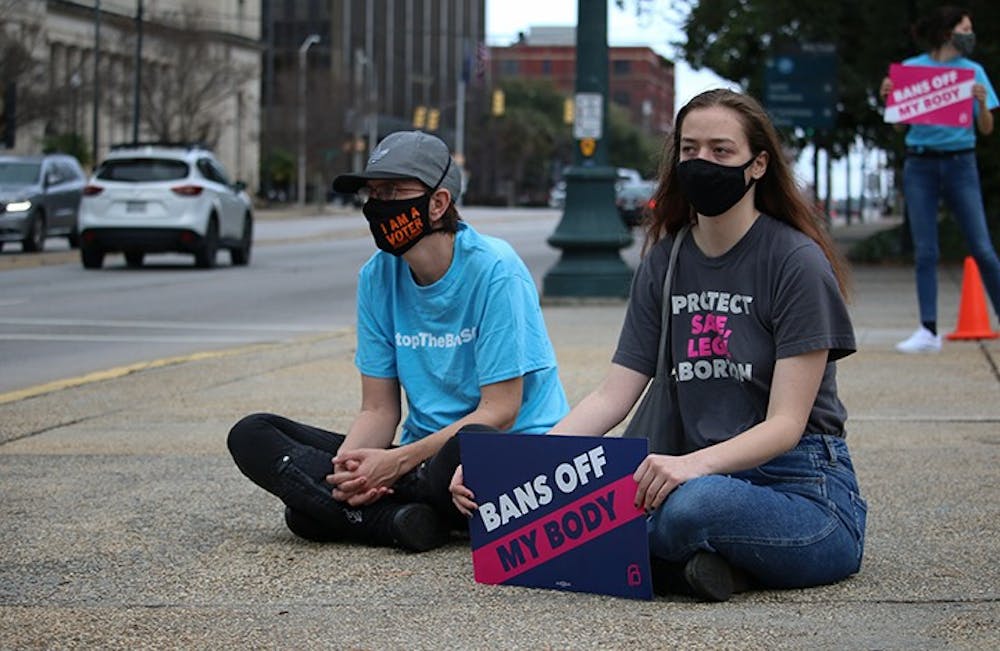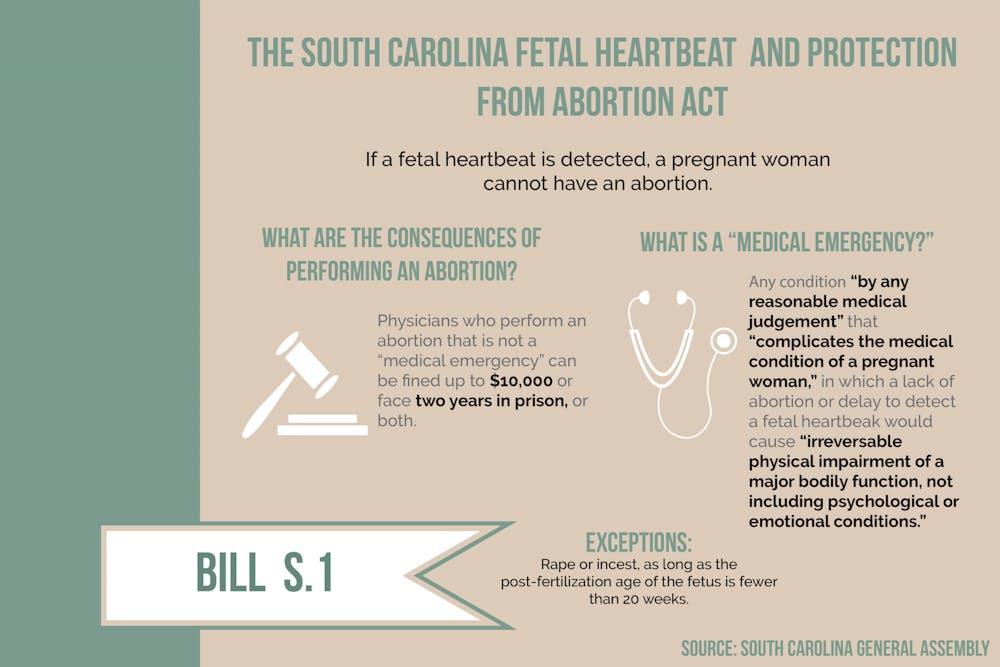The South Carolina Senate voted 30-13 to pass a bill outlawing abortions performed after the detection of a "fetal heartbeat" on Jan. 28. A "fetal heartbeat" can be detected as early as six weeks into a pregnancy, which is before most women even know they are pregnant.
"What it means is that the South Carolina legislature thinks that it is more qualified to make decisions about health care, pregnancy and parenting than [women] are," Ann Warner, CEO of the Women’s Rights and Empowerment Network, said.
The term "fetal heartbeat" used in the language of the "South Carolina Fetal Heartbeat and Protection from Abortion Act" is not a scientific one. According to Medical News Today, the rhythm cited in the six-week abortion ban is a group of cells with electrical activity, and at six weeks the baby is called an embryo, not a fetus. Fetus is a term used by doctors after the eighth week of pregnancy.
The bill will not stop abortions, according to Warner, but it will make them less safe.
"Some people will be able to afford to leave the state and seek their care elsewhere. Other people will resort to unsafe measures. And other people, who can't get an abortion, will experience a forced pregnancy, and a forced birth, and they could very well have a more dangerous pregnancy," Warner said.
The bill passed after three days of debate, during which exceptions for rape and incest were added. Warner said these exceptions make the bill no less harmful, only more "politically palatable."
"The exceptions for rape and incest do not help survivors. They actually harm survivors," Warner said.

Doctors who perform an abortion based on the exceptions of rape or incest must report it or risk a felony charge, according to the bill. However, the majority of people who experience sexual assault, harassment or abuse do not report it to law enforcement, according to Laura Palumbo, the communications director at the National Sexual Violence Resource Center.
"The nature of sexual assault is that it is an experience where someone has been violated, and their choices and their voice has been ignored," Palumbo said. "It is extremely re-traumatizing for victims when responders and systems also take that step of not giving them options, choosing for them, and moving forward with their report without their consent."
The bill is currently residing in the House Committee on Judiciary and is expected to pass the House due to a significant Republican majority. If it does pass, it will go to Gov. Henry McMaster, who has already expressed his intent to sign the bill into law.
Warner called the South Carolina government's continued focus on the bill "ironic and disappointing" in light of the unchecked COVID-19 pandemic.
According to reporting by The State, on Monday South Carolina reported the second-most COVID-19-related deaths in a single day at 210, behind 226 from Jan. 28. Of the 9,870 tests reported Monday, 22% came back positive. South Carolina was ranked 22nd out of 50 states in COVID-19 cases per 100,000 people as of Jan. 27.
"We can't get infection rates, death rates under control. We don't have a vaccination strategy. We have people who are sick and dying. Our economy is suffering, and women in particular are being affected by the disruption to our economy and are out of work," Warner said. "And the fact that the legislature is focusing its time and effort on taking away health care from women and people in South Carolina is really offensive to so many people who are trying to get by; who are trying to keep themselves safe; keep their kids safe."
Like others before it, the bill is likely to get tied up in the courts. President of the Feminist Collective at USC Sophie Luna said she thinks pro-life lawmakers are hoping the court battles over the constitutionality of anti-abortion bills will lead to the Supreme Court. There, the conservative-leaning court would have the opportunity to overturn the precedent of upholding the right to abortion care established in Roe v. Wade.
"The fight just to protect abortion rights is a lot more important than most people realize because this doesn't just affect people who are pregnant or might be pregnant. It's because this is [an] issue of the inviolability of your own body," Luna, a third-year geology student, said.

